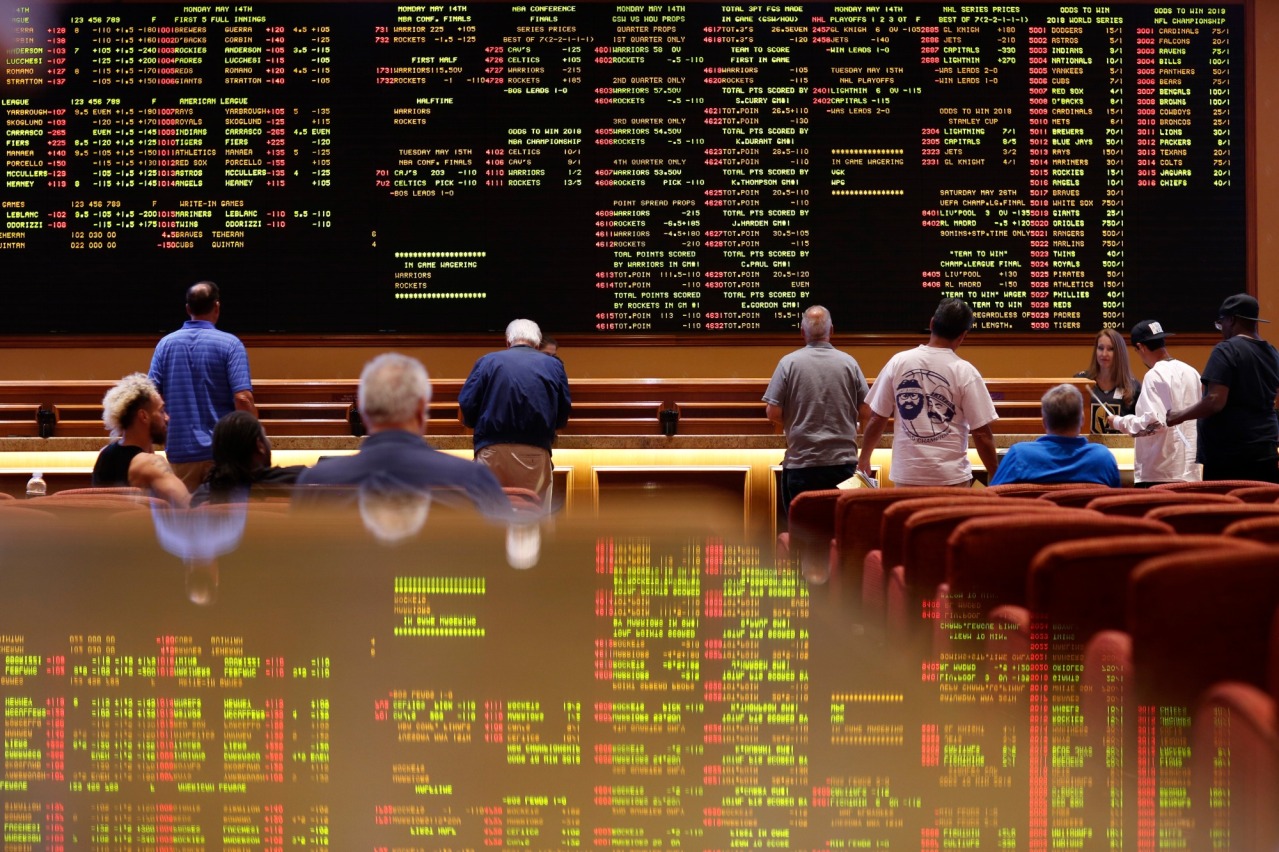Why are the A’s so eager to ditch Oakland for Las Vegas, a much smaller media market that increasingly is becoming crowded with other professional sports teams?
The team and its representatives would argue that the ambitious $1.5 billion ballpark plan — for which Nevada lawmakers last week committed $380 million in public money — justifies itself because of all the tourism that would be generated by baseball games.
But another factor looms over the decision by Oakland’s last major sports team to abandon California: the legalized gambling industry, and the rapid embrace of it in U.S. sports, including by Major League Baseball.
It might help explain why the A’s slunk away from what city leaders say was a competitive development deal at Oakland’s waterfront, where the team eventually could have constructed not just a stadium but also thousands of housing units, plus office and commercial space.
Or why the team is comfortable building a 30,000-seat stadium that instantly would become the MLB’s smallest: the right size to also attract live concert acts too popular for the nearby 18,000-seat hockey arena but not big enough to fill the 65,000-seat Allegiant Stadium that houses the Raiders.
“The legalization of sports gambling, including over the internet, is probably going to be the single biggest change to the business side of sports that happened in our lifetimes,” said Stanford University sports economist Roger Noll in an interview. “You can easily increase by 50-to-100 percent the profitability of owning a sports team. It’s that big.”
The legalized online sports betting industry has exploded since the Supreme Court struck down a federal gambling ban in 2018, but it remains illegal in California, where voters last fall rejected two ballot measures competing for control of the industry.
And despite worries of corruption or widespread addiction, U.S. sports leagues suddenly are going out of their way to make gambling as accessible as possible. Some stadium owners are building on-site betting lounges for sportsbooks to directly reach fans.
At a minimum, the A’s would be next door to a gambling site in Las Vegas. Bally’s Corporation, which owns the lot, plans to tear down the Tropicana hotel and build a new hotel-casino to neighbor the proposed 9-acre ballpark.

In interviews, economists suggested that the A’s move may be less about Vegas’ lure as a growing sports town — or even Oakland’s perceived flaws — than California’s long delay in embracing online betting, especially in the wake of the most recent election results.
The team’s relocation hopes have the backing of MLB Commissioner Rob Manfred, who has offered to waive relocation fees (about $300 million) and, last week, suggested to reporters that Oakland civic leaders had not made enough efforts to keep the team in town.
“That’s just flat-out BS,” said Councilmember Dan Kalb in an interview, citing the city’s willingness to put up at least $300 million in grant dollars, according to reports, toward off-site infrastructure to support the project. “We bent over backwards to be very accommodating to the things they asked for.”
A’s ownership has not spoken publicly about the relocation plan since it secured the necessary votes from Nevada lawmakers. But team-hired analyst Jeremy Aguero, in interviews, is adamant that sports gambling was not part of the discussion when he joined the the project — after previously working on the Raiders’ relocation — to help figure out how the A’s financing plan could work within Nevada laws.
“The fact is that in southern Nevada we have 40 million visitors every year, and we believe about 400,000 of them will attend games,” Aguero said, noting, as stadium proponents often do, the numerous community benefits that the A’s promised to secure a deal.
But skeptics last week at the Legislature, as well as sports economists around the country, have questioned whether stadiums alone can ever be enough of a draw to be worth investing hundreds of millions.
Instead, the opportunities for franchises to cash in on gambling are endless, with those betting on sports much more likely than the average fan to buy tickets or watch livestreams of games, a senior MLB official told the Sports Business Journal last year.
Franchises are widely expected to begin selling broadcasting rights that center around gambling — livestreams cluttered with the latest odds for betting incentives from online giants like FanDuel, DraftKings and BetMGM.
Sports teams, meanwhile, have arrived in droves to Sin City, the nation’s epicenter of gambling. In just the past few years, Vegas received the Raiders, Stanley Cup champion Golden Knights and WNBA champ Aces, with an NBA franchise anticipated in the coming years.
“Vegas was always seen as a risky thing,” said Nicholas Irwin, a professor of sports economics at UNLV, in a recent interview. “But as sports gambling has become more widespread, it’s made the leagues much more comfortable with the idea of being located here.”
